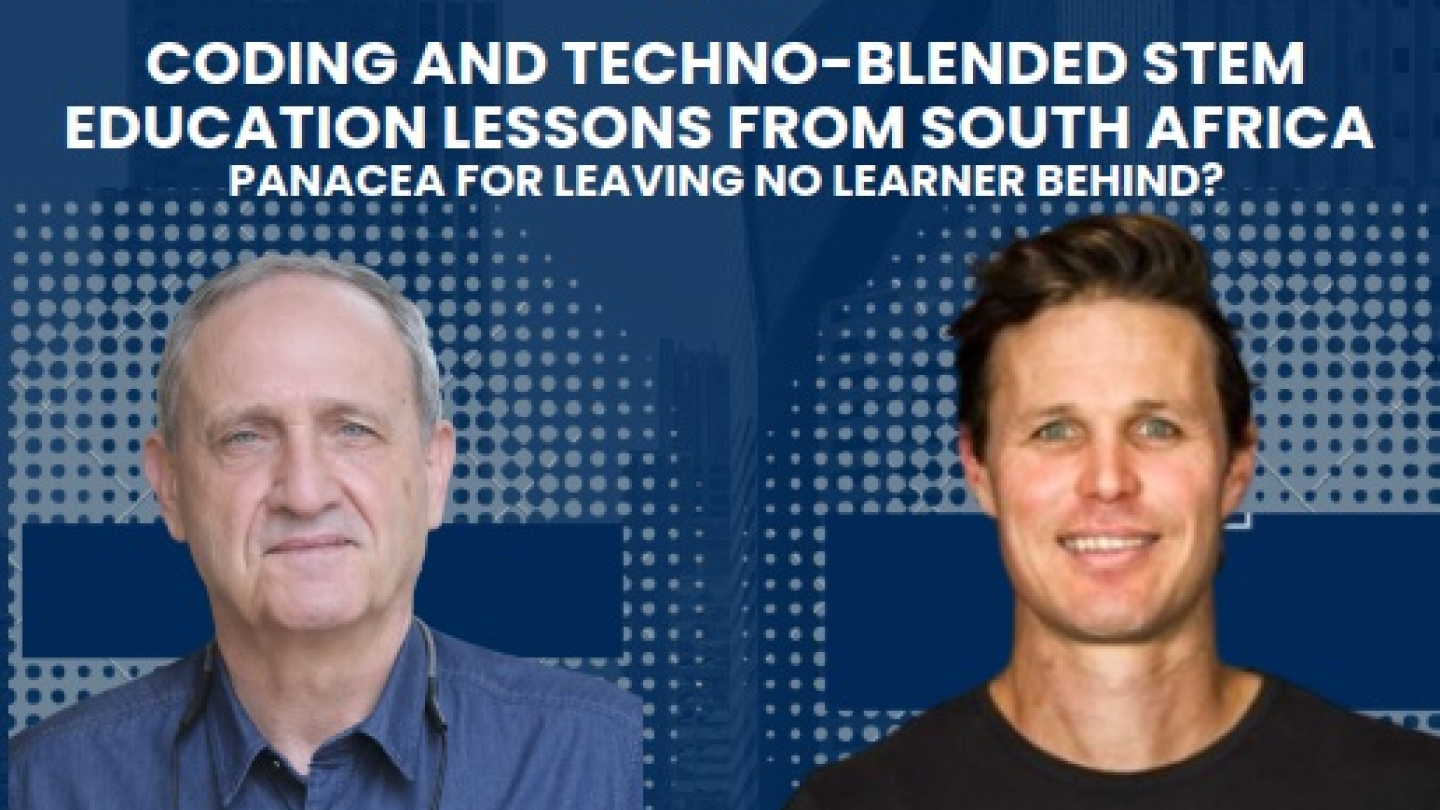About the speakers
Werner Olivier, is a mathematics professor and director of the Govan Mbeki Mathematics Development Centre (GMMDC) at Nelson Mandela University, South Africa. With a background as a research mathematician and former National Chair in Maths Education, he advocates engaged scholarship and technology-integrated teaching and learning. Olivier led GMMDC to produce modern STEM teaching models, customized digital resources and tailored M-learning programs, addressing quality and equity challenges in secondary school STEM education. Notably, he pioneered GeoGebra initiatives and STEM projects, including a national MathArt project enhancing STEAM education in underprivileged schools.
Ryan le Roux is CEO of the Leva Foundation, a non-profit organisation oriented around skills and enterprise development. Through this vehicle, he has facilitated the launch of projects throughout Africa and Europe. Leva Foundation’s flagship project is Tangible Africa, which teaches software development skills to school aged learners. Ryan started his working career playing rugby in Europe, but since returning to South Africa in 2012, and obtaining an MBA from Henley Business School, has shifted his attention to connecting the dots between corporate business and the non-profit sector.



